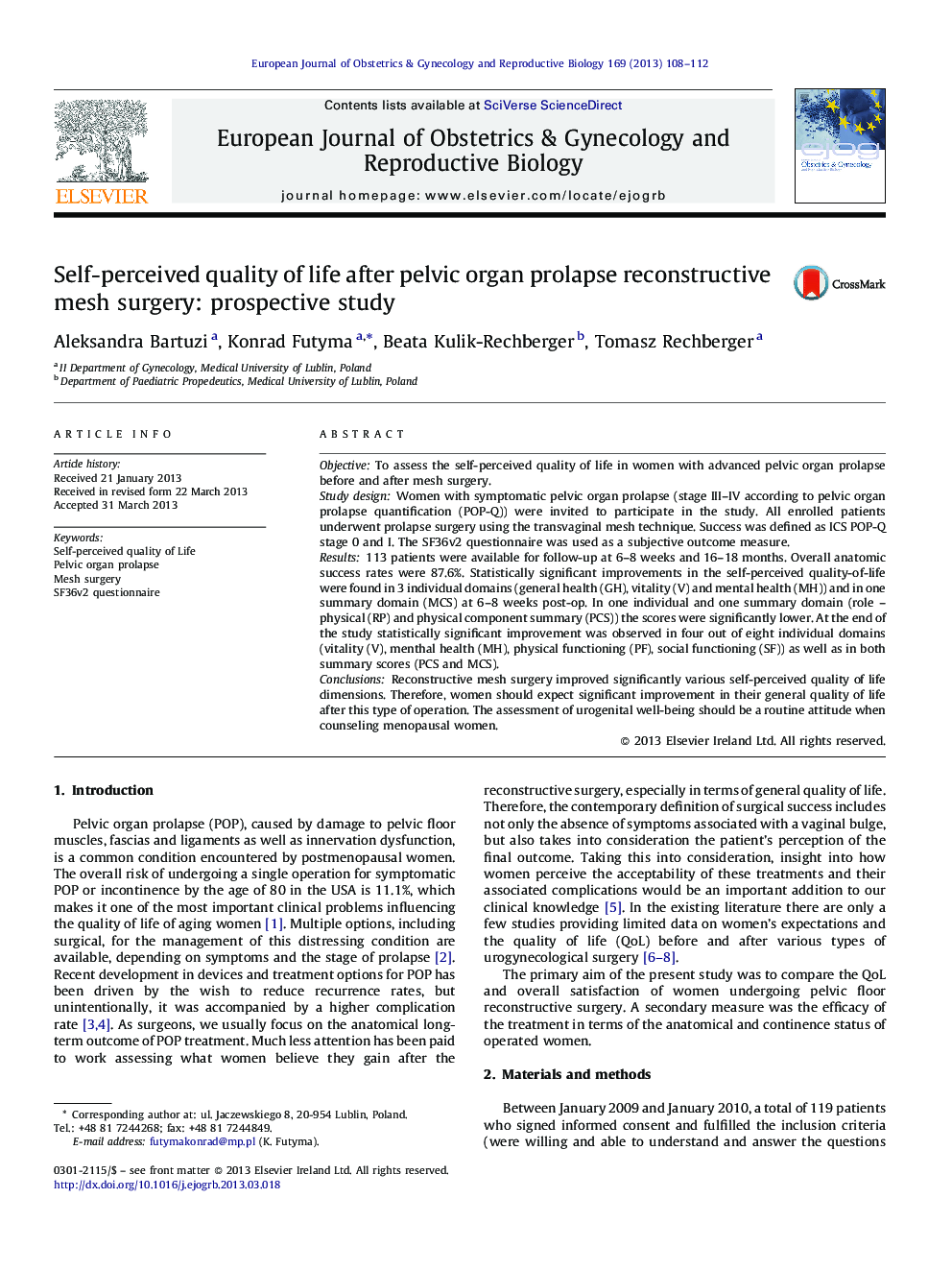| Article ID | Journal | Published Year | Pages | File Type |
|---|---|---|---|---|
| 3920152 | European Journal of Obstetrics & Gynecology and Reproductive Biology | 2013 | 5 Pages |
ObjectiveTo assess the self-perceived quality of life in women with advanced pelvic organ prolapse before and after mesh surgery.Study designWomen with symptomatic pelvic organ prolapse (stage III–IV according to pelvic organ prolapse quantification (POP-Q)) were invited to participate in the study. All enrolled patients underwent prolapse surgery using the transvaginal mesh technique. Success was defined as ICS POP-Q stage 0 and I. The SF36v2 questionnaire was used as a subjective outcome measure.Results113 patients were available for follow-up at 6–8 weeks and 16–18 months. Overall anatomic success rates were 87.6%. Statistically significant improvements in the self-perceived quality-of-life were found in 3 individual domains (general health (GH), vitality (V) and mental health (MH)) and in one summary domain (MCS) at 6–8 weeks post-op. In one individual and one summary domain (role – physical (RP) and physical component summary (PCS)) the scores were significantly lower. At the end of the study statistically significant improvement was observed in four out of eight individual domains (vitality (V), menthal health (MH), physical functioning (PF), social functioning (SF)) as well as in both summary scores (PCS and MCS).ConclusionsReconstructive mesh surgery improved significantly various self-perceived quality of life dimensions. Therefore, women should expect significant improvement in their general quality of life after this type of operation. The assessment of urogenital well-being should be a routine attitude when counseling menopausal women.
